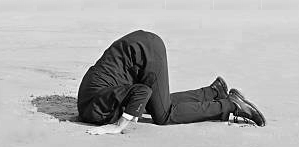Older and more affluent investors in particular aren't reevaluating themselves
By Ryan Vlastelica, MarketWatch [1]
The global economy is in an unusually uncertain place right now, an environment marked by low global interest rates, uneven levels of growth in major markets, heightened geopolitical uncertainty and U.S. stock market valuations that seem stretched, by many metrics. However, half of investors haven’t even thought about whether they should adjust their portfolios in response to current conditions — perhaps to their detriment.
According to a survey by Dreyfus, 49% of individual investors have yet to take any action to reevaluate their investment approaches in response to what the investment management firm said was “the possibility of a shifting investment landscape.”
While many investing experts, most notably Jack Bogle of Vanguard, have urged buy-and-hold strategies, advocating that investors take the very long-term view of things and ride out any market swings or cycles, failing to regularly examine or adjust one’s portfolio can leave them vulnerable in the event the market shifts unexpectedly.
“Investors should monitor their portfolio in the way you go to the doctor to get an annual check-up. You wouldn't buy a car and then never get the oil checked,” said Mark Santero, CEO of Dreyfus, which is a unit of Bank of New York Mellon Corp.
“If you’re 25, a buy-and-hold strategy until you’re 45 makes sense; you’ll ride the various cycles. But when you’re 45, you’ll have different plans for your dollars than you would otherwise. You need to periodically make sure that things haven’t changed in your life or in the market.”
Santero stressed that he wasn't advocating that investors allocate in a particular way, nor was he making a call on where various asset classes were headed. Instead, he said, the survey suggested that investors were essentially ignoring their portfolios. “This is less about positioning, and more about whether people are looking in general,” he said.
“You need to periodically make sure that things haven’t changed in your life or in the market. Given the volatility that can exist in an information age where economic outcomes change instantly, it isn’t necessarily prudent to stay the course.”
Older investors, who may be most at risk of changing market conditions because they’ll have less time to make up for any lost ground before retirement, are actually the least likely to monitor their positions, according to the survey. Fully 61% of investors above the age of 55 indicated they haven’t or won’t reevaluate their approach in the current environment. In addition, 43% of the mass affluent haven’t evaluated their holdings.
“You would expect the exact opposite, and why they’re not looking is more of a socioeconomic question,” Santero said.
Wall Street has been in a nearly uninterrupted bull market for years, ever since the 2009 bottom of the financial crisis. The equity market has largely been bereft of declines or even volatility, and the length of the expansion could have lulled investors into thinking that equities are the safest place to get gains. The CBOE Volatility index (VIX) has recently hit multidecade lows, which some view as a sign of complacency.
Younger investors showed a greater inclination to examine themselves. While only 39% of investors above the age of 55 have already evaluated their investing approach, 65% of young investors — aged 21 to 34 — have.
“What we want to reinforce is that objectives change and markets change,” Santero said. “Investors need to ensure that their portfolios are still in line to meet their objectives given the market environment.
“However, he added, it is definitely possible to have too much of a good thing. If you’re constantly making changes, you could be buying at highs and selling at lows.”
From MarketWatch [2]
